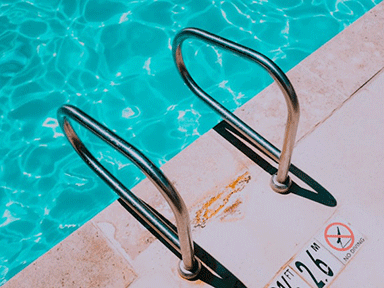Safety and security are top priorities for Australians, and landlords and property managers play a key role in keeping homes safe, while also protecting themselves from legal and insurance risks. Want practical ways to make properties safer and gain peace of mind in 2026? Read on…
Making home safety and security a priority in 2026 delivers a range of benefits for landlords and property managers, from attracting quality tenants and supporting premium rental pricing, to keeping maintenance costs under control. It also means fewer risks around negligence claims, fewer regulatory headaches, and less chance of insurance cover being affected.
Ensuring a property is safe can feel daunting, but it does not have to be. Here are five simple actions you can take in 2026 to make your rental property safer and more comfortable for tenants.
Do the basics
There are minimum standards for rental properties in legislation across states and territories. They include a range of functionality standards (like making sure the home is structurally sound and waterproof), and most have safety implications (like making sure there is no mould or vermin running rampant and that proper pool fencing is installed). The rental property must comply with all the relevant local, state and federal laws and regulations, as a bare minimum. Ignoring these basics could get you in trouble with the law and your insurer. Failing to keep a rental property safe and compliant can reduce (or even void) an insurance claim.
Reduce fire risk, inside and outside the home
Summer heatwaves and the inevitable bushfires are harsh reminders to ensure homes are as fire safe as possible. A report called When Cities Burn: Could the LA Fires happen here? released this month (January 2026) underlines the dangers urban bushfires pose to millions of Australians living on the outskirts of our capital cities.
“If you live in suburbia and think bushfires don’t concern you, think again. Nearly every Australian capital city has a dangerous mix of preconditions for a catastrophic fire like LA: the possibility of extreme dry periods; severe winds; steep slopes; bushland near homes; and a history of destructive fires,” said Former NSW Fire Commissioner and founder of Emergency Leaders for Climate Action, Greg Mullins.
No matter where your rental is located, it is important to take precautions. Keep trees and vegetation away from the home and ensure door and window seals are in good condition to reduce the risk of ember entry during a nearby fire. Inside the property, comply with building codes and regularly maintain smoke alarms. You may also consider providing fire extinguishers or blankets, particularly in the kitchen and given the rise of lithium-ion battery use.
EBM RentCover policies generally cover fire damage including bushfires, electrical faults, and tenant-caused fires, but coverage depends on your policy and circumstances. For instance, a fire caused by faulty installation or negligence may not be covered. That is why it is important to use registered tradespeople to minimise this risk. If a property is uninhabitable after a fire, EBM RentCover can also provide cover for loss of rent.
Inspect thoroughly and invest in preventative maintenance
Regular property inspections are not just to ensure tenants are looking after the property as they should. They are also a great opportunity to identify any safety risks that may have arisen since the last inspection and advise landlords of what investments might be made to make their property even safer. That might be anything from slippery steps or trip hazards in the carpet, broken fixtures in the bathroom, loose or missing roof tiles, or dodgy electrical wall sockets. Do not wait until the risk becomes a reality. Investing in preventative maintenance can save a lot of money and heartache later.
Home security
Almost 220,000 homes were burgled in 2023-24 according to the Australian Bureau of Statistics. One in five were broken into multiple times. While tenants are responsible for insuring their contents, a landlord’s property can suffer considerable damage at the hands of burglars. Broken locks and windows, buckled flyscreens, broken glass and damaged doors are all likely headaches, not to mention damage to fixtures and fittings as thieves wreak their havoc inside. While high-end technology may not always be practical, simple measures like quality doors and flyscreens, heavy-duty locks, garden and sensor lighting, or even prickly plants under windows can be effective deterrents. Whether a burglary at your rental is fully covered depends on your policy and specific circumstances. You can find out more here, or speak to the EBM RentCover team.
Communication
Good communication is key to keeping a rental property running smoothly. Talking regularly with tenants about safety, maintenance, and general property care helps prevent issues before they arise. When tenants know that landlords and property managers prioritise safety, they are more likely to flag concerns promptly, which can help avoid bigger problems down the track.
Likewise, keeping an open line with the EBM RentCover team ensures any questions or concerns about your insurance cover are addressed quickly, giving you extra peace of mind. Got a question? Give us a call on 1800 661 662.
*While we have taken care to ensure the information above is true and correct at the time of publication, changes in circumstances and legislation after the displayed date may impact the accuracy of this article. If you need us we are there, contact 1800 661 662 if you have any questions.
You may also like
View all
A rental property is a major investment, so it pays for landlords to monitor the market and have plans in place to address risks...

Here we explore five summertime risks and offer some tips to help landlords and property managers proactively address them...

Summer storms are on the way so make sure your rental property is storm-proof before disaster strikes...





